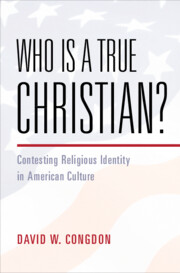Political debates over religious freedom in Australia became prominent in the context of marriage equality, achieved in 2017. The Australian Christian Right (ACR) has driven these debates, but there is little research focusing on its discourse of religious freedom. This article examines a range of texts from ACR actors. Using discourse and theoretical analyses, we identify three key turns in the religious freedom rhetoric of the ACR: “ontological security,” “existential stress,” and “meaning vertigo.” We also explore how mimetic ACR discourse is compared to the United States' Christian Right (USCR). As with the USCR, this research demonstrates how the ACR—suffering meaning vertigo and aiming to re-secure its previously taken-for-granted worldview—has successfully reframed the discourse of religious freedom by positioning itself as a besieged minority.


